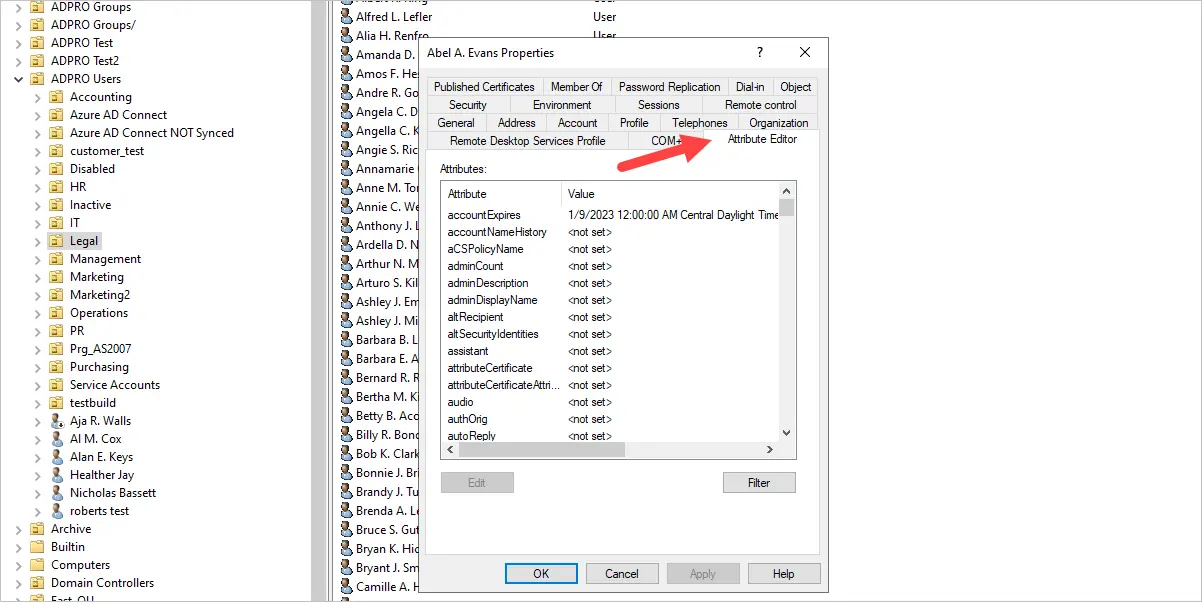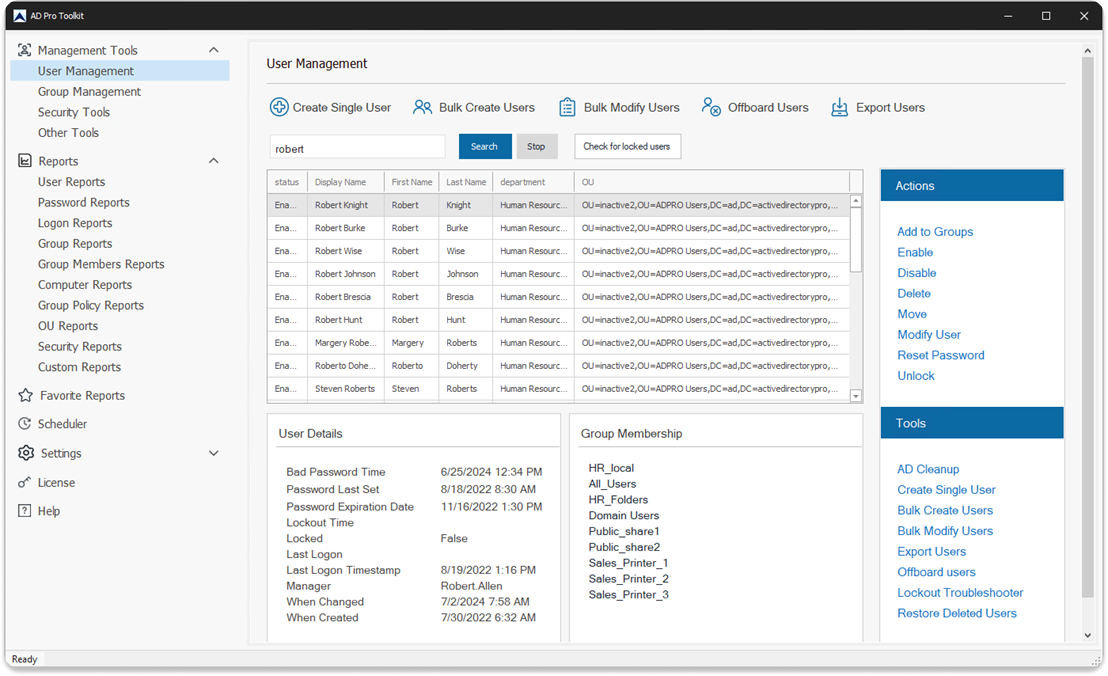In this guide, you will learn how to enable the Attribute Editor in Active Directory, it is disabled by default. In addition, I’ll show you how to view user attributes with ADUC, PowerShell, and the AD Pro Toolkit.
Table of Contents:
- How to View User Attributes using ADUC
- Get All User Attributes Using the AD Pro Toolkit (GUI TOOL)
- Get All User Attributes with PowerShell
How to View User Attributes using Active Directory Users and Computers (ADUC)
Use the steps below to enable the Attribute Editor and view user attributes in Active Directory.
Step 1. Open ADUC
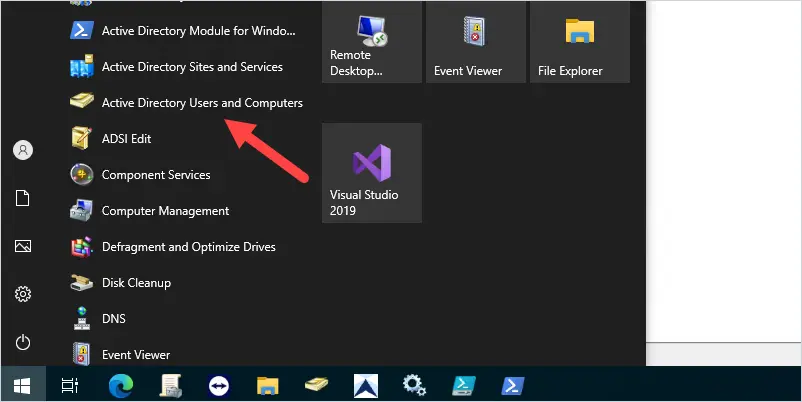
Step 2. Click on View and enable Advanced Features
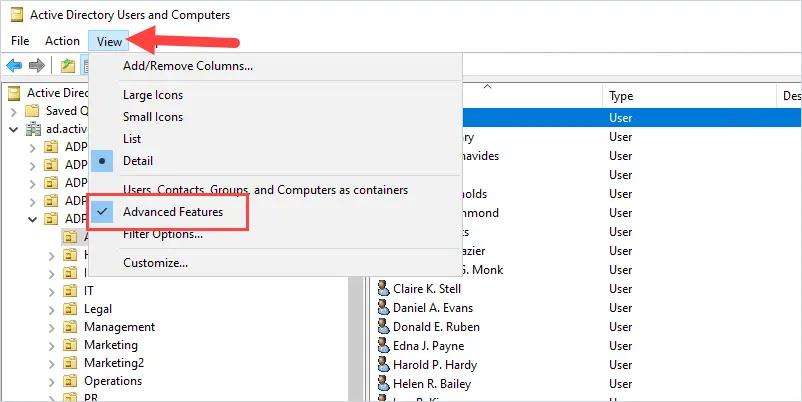
When you enable advanced features this option will stay enabled, meaning you do not need to enable it each time you open ADUC.
Step 3. Open the Attribute Editor
With the advanced features enabled, you can open a user account and click the Attribute Editor. This will display all the attributes for this user account.
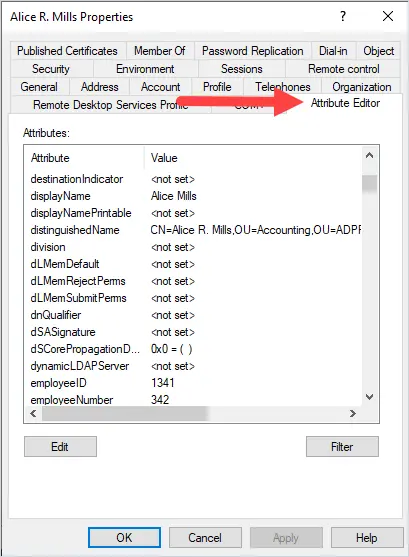
There will be many attributes that are blank, this is normal. If you want to see only the attributes that have values click on filter and select Show only attributes that have values.
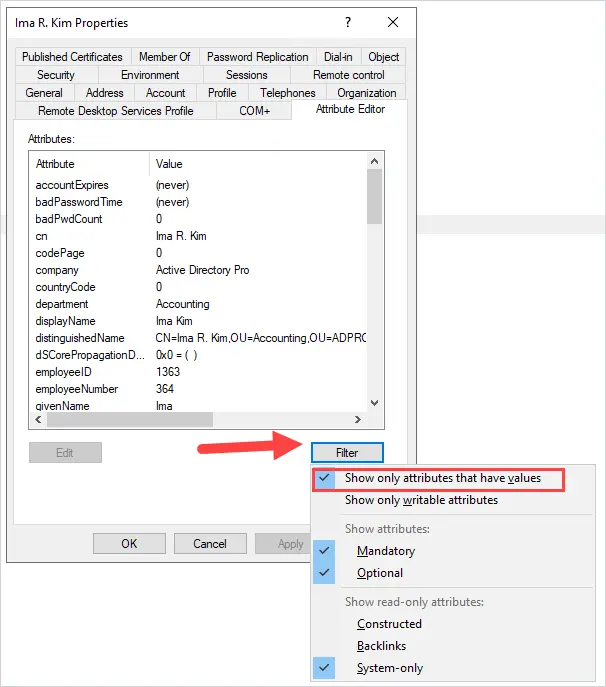
This will greatly reduce the number of attributes displayed for the user. I personally like to display all attributes including the blank ones as I often need to check the value for specific user attributes.
Get All User Attributes Using the AD Pro Toolkit
There are a few different ways you can get all user attributes with the AD Pro Toolkit.
Note: The toolkit does not get all attributes, it has been configured to list the most commonly used attributes. Currently, it will get over 40 user attributes. More can be added upon request.
Step 1. Run All Users Report
Click on User Reports – All Users
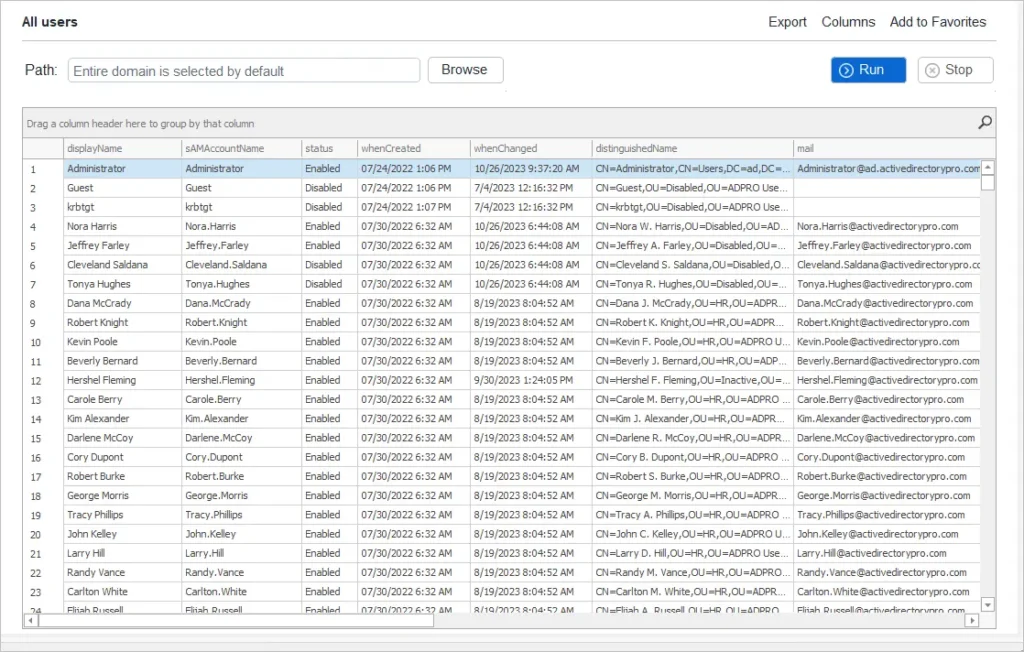
Step 2. Add or Remove User Attributes
To add or remove user attributes to the report click the columns button at the top.
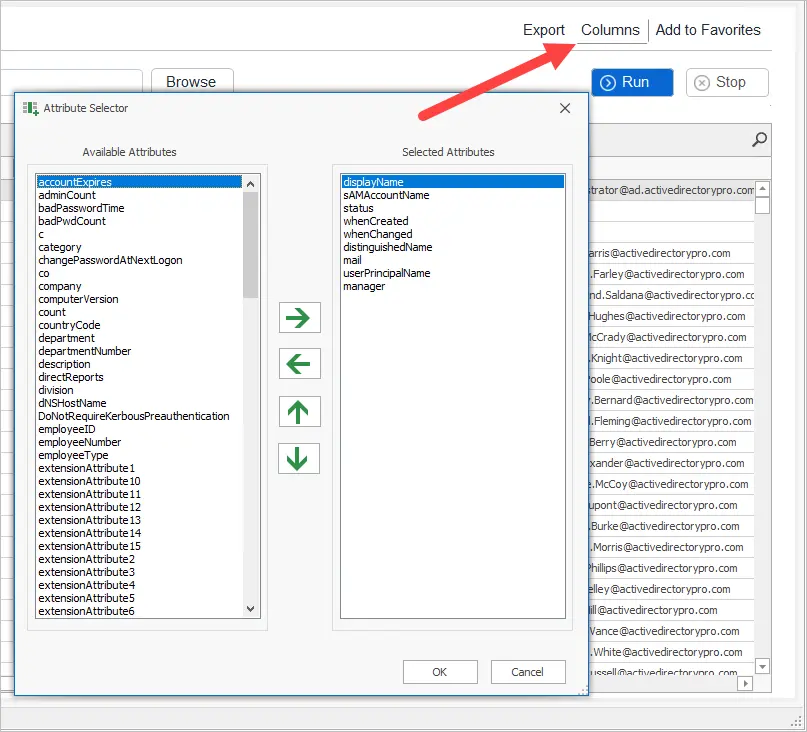
The AD Pro Toolkit includes over 200 pre-built reports.
- User Reports
- Computer Reports
- Group Policy Reports
- Group Reports
- OUs
- Security Reports
Try the Toolkit for FREE in your domain, Download Free Trial.
Get All User Attributes with PowerShell
By default, the get-aduser cmdlet will only return 10 user attributes.
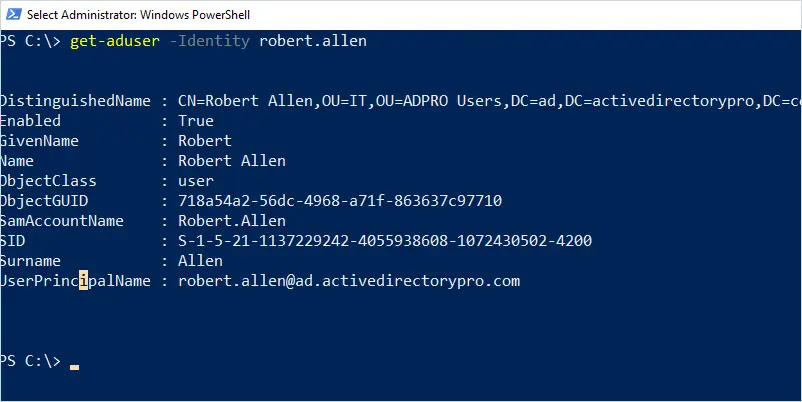
To view all user attributes with PowerShell you need to use the Properties parameter.
Here is an example command.
get-aduser -Identity robert.allen -properties *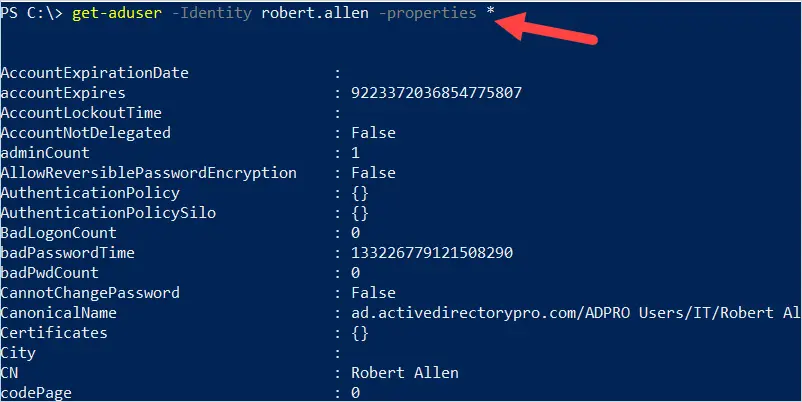
The above command will return 111 user attributes. This number might be different in your domain depending on if the schema has been modified or extended.
To count the number of attributes use the below command.
$user= get-aduser robert.allen -properties *;
$user | Get-Member -MemberType Property,AliasProperty | Measure-Object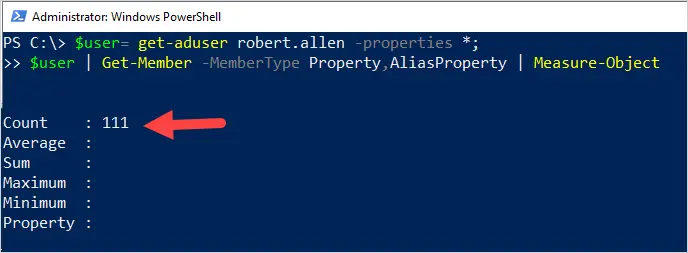
I hope you found this guide useful. If you have questions or comments post them below.
